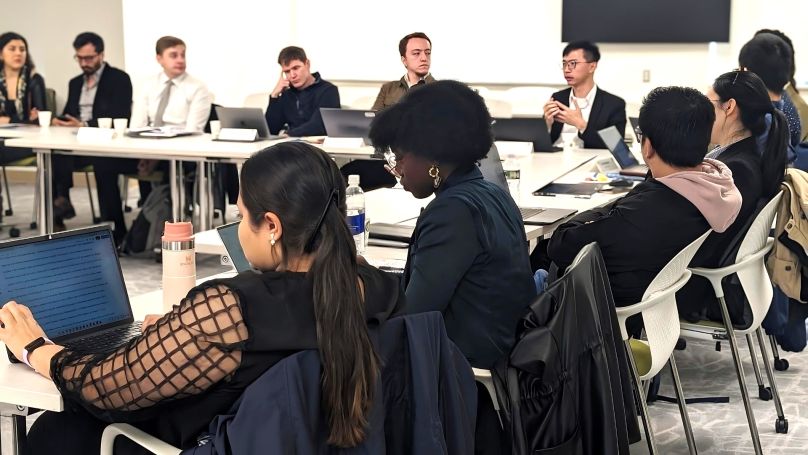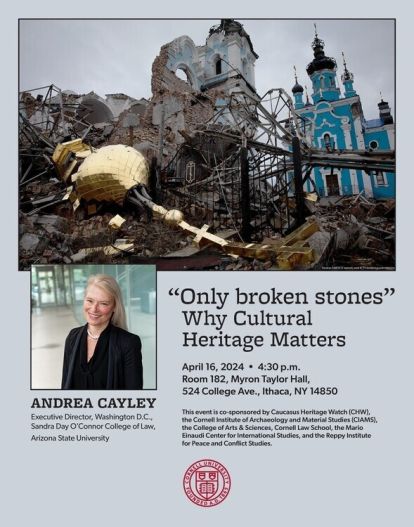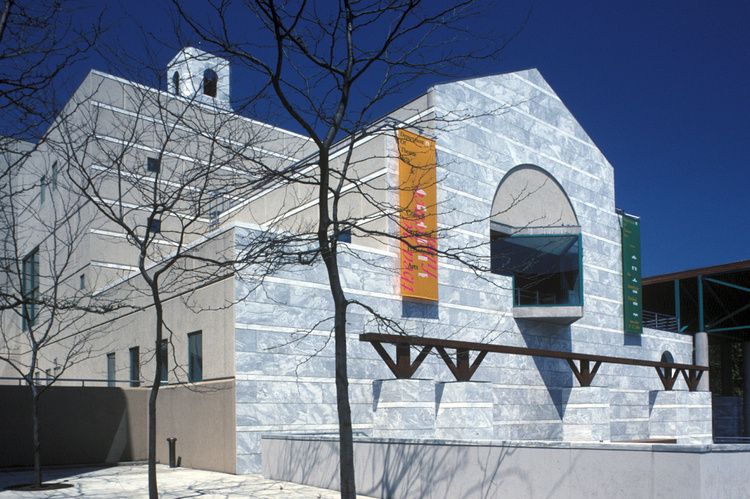Reppy Institute for Peace and Conflict Studies
Peace and Conflict Studies Annual Graduate Student Conference Review

By Avishai Melamed, 2023-24 Reppy Institute Director’s Fellow
On April 27, the Judith Reppy Institute for Peace and Conflict Studies hosted its annual Graduate Student Conference.
The academic workshop, which aims to bring together graduate students whose work seeks to answer global peace and conflict questions, featured thirteen scholars from Cornell University and beyond to discuss research on the institute’s focal topics of climate change and conflict, nuclear security, governance of emerging technologies, and human rights, race, and gender. The guest presenters were joined by current and former Reppy Institute Graduate Fellows, as well as Cornell graduate students who contributed as discussants.
Emphasizing the conference’s commitment to multi-disciplinary perspectives, participants included political scientists, sociologists, historians, and professional students. Equally important was the event’s support for methodological pluralism, with presented research including econometric, ethnographic, survey-experimental, text analytic, and other methodological approaches.
The first panel (Jing Ge, Florida International University; Chi Fang, University of California, San Diego; Sanghyun Han, Georgia Institute of Technology; Ahmet Ergurum, University of Wisconsin, Milwaukee) featured papers analyzing the governance of artificial intelligence, international arms trade and development, contemporary industrial policy, and international institutions’ growing interest in emerging technology. The papers emphasized the opportunities and challenges that sensitive and rapidly evolving technologies’ pose for contemporary geopolitics.
Moving to the second panel (Danielle Obise-Orlu, Cornell University; Bohan Zhang, Rice University; Phoebe Wagner, Cornell University), participants examined the importance of historical memory in both past and present peacebuilding efforts, strategic interstate interactions, and the construction of just and equitable societies. Scholars explored various regional perspectives on memory, analyzing how states and cultures frame history and construct memory, both for themselves and foreign audiences.
The third panel (Vierelina Fernandez, Florida International University; Maisnam Arnapal, University of California, Santa Barbara; Khilola Iakubzhanova, Cornell University) explored gendered norms and social attitudes in a range of settings, including South America, the Middle East, and South Asia. In particular, scholars emphasized the agency of communities and organizations in actively shaping these views to influence and support their members.
Finally, the fourth panel (Cecilia Cavero Sánchez, Pennsylvania State University; Lois Matthew, Cornell University) focused on the role of civil society in post-conflict and regime change conditions. From communities and municipalities to entire countries, civil society plays a vital role in mediating the spread of norms and attitudes, as well as coordinating public responses to rapid and large-scale sociopolitical shifts.
The Reppy Institute thanks the participants and looks forward to continuing its mission of furthering peace and conflict studies in the 2025 conference.
Additional Information
Wa History: Agency and Victimization

Magnus Fiskesjö, PACS/EAP/SEAP
Magnus Fiskesjö has published a chapter on the Wa ethnic group in a new volume, Chasing Traces: History and Ethnography in the Uplands of Socialist Asia, edited by Pierre Petit and Jean Michaud.
Additional Information
Topic
- World in Focus
Program
International Fair

August 28, 2024
11:00 am
Uris Hall, Terrace
International Fair showcases Cornell's global opportunities for undergraduate and graduate students. Explore the fair and find out about international majors and minors, language study, study abroad, funding opportunities, global internships, Cornell Global Hubs, and more.
The International Fair is sponsored by the Mario Einaudi Center for International Studies and Office of Global Learning (both part of Global Cornell) in partnership with the Language Resource Center.
Register on CampusGroups to receive a reminder. Registration is not required.
Additional Information
Program
Einaudi Center for International Studies
Reppy Institute for Peace and Conflict Studies
East Asia Program
Southeast Asia Program
Latin American and Caribbean Studies
Institute for African Development
Institute for European Studies
South Asia Program
The House TikTok bill just passed. Now what?

Sarah Kreps, PACS
“One of the few things that can get around free speech and constitutional questions is national security,” says Sarah Kreps, professor of government. “If that is the argument, then the legislation and the constitutionality of it will have enormous latitude.”
Additional Information
Explorations of Global Free Speech: Faculty Roundtable

May 2, 2024
5:30 pm
Mann Library, 102
Join the Mario Einaudi Center for International Studies's Global Public Voices fellows for a roundtable discussion exploring global free speech as part of Cornell's freedom of expression theme year.
This year's fellows are seasoned media voices, ready to advocate on global free speech questions central to current events, public policy, and their international research expertise.
Freedom of Expression Faculty Fellows
Oumar Ba, Assistant Professor, GovernmentAlexandra Dufresne, Professor of the Practice, Cornell Brooks School of Public PolicySharif Hozoori, IIE-SRF Fellow and Visiting Scholar Karim-Aly Saleh Kassam, International Professor of Environmental and Indigenous StudiesThe Einaudi Center's undergraduate global scholars will present their freedom of expression capstone projects at an accompanying event at 4 p.m. in Mann 112 (CALS Zone) prior to this event.
Additional Information
Program
Einaudi Center for International Studies
Reppy Institute for Peace and Conflict Studies
South Asia Program
Uyghur Human Rights Project Bibliography

Magnus Fiskesjö in World in Focus
Magnus Fiskesjö recently updated the Uyghur bibliography he began in 2017. The bibliography is hosted by the Uyghur Human Rights Project, "one of the most active and well-known organizations dedicated to the issue," he says.
"I refer to the bibliography in my Cornell course Genocide Today: The Erasure of Cultures, which I have taught four times so far."
Since 2017, the Chinese government has imprisoned more than one million Uyghurs and Kazakhs in China's far-northwest region of Xinjiang and committed systematic human rights violations—including forced labor, religious restrictions, family separations, and sterilizations—against the region's mostly Muslim ethnic groups.
Fiskesjö launched the bibliography project to collect news reports, documents, and research on the abuses as they unfolded.
"I started the bibliography on a personal basis, just to keep track of important news on the issue," he said. "Then I was happy to have it hosted publicly so others can benefit."
The bibliography now runs to more than 2,300 pages. It is searchable by topics like eyewitness accounts, forced labor, heritage destruction, reproductive abuse, organ harvesting, and Chinese tourism as propaganda.
Magnus Fiskesjö is a Reppy Institute for Peace and Conflict Studies steering committee member and core faculty in the East Asia Program and Southeast Asia Program.
Featured in World in Focus Briefs
Additional Information
Meta Scales Back News and Political Content

Sarah Kreps, PACS
“I think with many big elections coming up this year, it’s not surprising that Facebook is taking yet another step away from politics so that they can just not, inadvertently, themselves become a political headline,” says Sarah Kreps, professor of government.
Additional Information
Little-known Opposition Leader in Senegal Is Named the Next President

Oumar Ba, PACS/GPV
Oumar Ba, assistant professor of government, comments on Senegalese President Macky Sall's refusal to rule out a third term.
Additional Information
“Only broken stones” Why Cultural Heritage Matters

April 16, 2024
4:30 pm
Myron Taylor Hall, 182
Abstract
Andrea Cayley will discuss the importance of seeking accountability in international and national courts for the destruction of cultural heritage.When international prosecutors look to bring cases for the destruction of cultural heritage, they are faced with comments such as ‘how can you focus on buildings when so many people have died’ or as Prof. Cayley was told when working on the prosecution of Pavle Strugar for attacks on Dubrovnik, Croatia, a protected UNESCO world heritage site, these are “only broken stones.” In fact, the US Department of Defense has stated that the first indicator of a genocide risk is an attack on cultural heritage. Why is the destruction of cultural heritage an essential part of charge of crimes against humanity or genocide? What is the legal framework of prosecuting these crimes and what are the evidentiary challenges? What is the current situation in Ukraine and what is being done to prosecute these crimes?
About Andrea Cayley
Andrea Matačić Cayley, J.D. Ph.D., the Executive Director of the Sandra Day O’Connor College of Law’s Washington D.C. program, has 20 years of experience working as a war crimes prosecutor at the International Criminal Tribunal for the Former Yugoslavia and the Extraordinary Chambers in the Courts Cambodia. She worked with UNESCO to prepare the indictment and prosecution of the most significant case of cultural property destruction in Yugoslavia (Prosecutor v. Pavle Strugar IT-01-42-A) and worked on the prosecution of numerous Bosnian cases where the destruction of Bosnian Muslim heritage was found to be a crime against humanity. She has advised on universal jurisdiction cases brought against Liberian as well as Syrian and Ukrainian war criminals. She has been part of the NATO cultural property advisory since 2016 and is a coordinator of the Atrocity Crimes Advisory group for Ukraine, the official US/UK/EU response to war crimes occurring in Ukraine. She leads the cultural heritage advisory for ACA. In November 2023, Andrea co-founded the Heritage Warfare Consortium, a partnership between ASU, the University of Pennsylvania, and Copenhagen University. This consortium brings a multi-disciplinary approach to the protection of cultural heritage and to accountability for cultural destruction. Andrea holds a BA from Columbia University, an MA in Slavic Studies from the University of Zagreb, Croatia, a JD from Temple University, and a PhD in International Law from Leiden University.
This event is co-sponsored by Caucasus Heritage Watch (CHW), the Cornell Institute of Archaeology and Material Studies (CIAMS), the College of Arts & Sciences, Cornell Law School, the Mario Einaudi Center for International Studies, and the Reppy Institute for Peace and Conflict Studies.
Additional Information
Program
Einaudi Center for International Studies
Reppy Institute for Peace and Conflict Studies
Screening of "Israelism" & discussion with the filmmaker

April 13, 2024
6:00 pm
Schwartz Center for Performing Arts, Film Forum
Cornell's Jewish Voice for Peace will be screening the film Israelism followed by a discussion with filmmaker Erin Axelman.
Additional Information
Program
Reppy Institute for Peace and Conflict Studies
